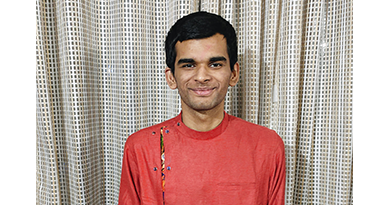How to get an internship at Samsung
 Most likely, you may have stumbled upon this article while searching for internships in Samsung. One of the largest multinational conglomerates, Samsung is known for providing excellent internship opportunities. A Samsung internship is valued by students all over the world.
Most likely, you may have stumbled upon this article while searching for internships in Samsung. One of the largest multinational conglomerates, Samsung is known for providing excellent internship opportunities. A Samsung internship is valued by students all over the world.
What are the types of internships available at Samsung and who are eligible to apply?
Samsung has dedicated internship programs for engineering undergraduates, postgraduates, and MBA students which generally last over a period of 10 weeks. There are various divisions in Samsung and internships are available in a variety of disciplines. For an internship in Samsung India, interns are taken for the three R&D centres: Samsung Research Institutes in Bangalore, Delhi, and Noida for both software and hardware profiles.
How to apply?
Interested students can apply through following methods:
1. Campus recruitment: Samsung hires most of the interns through universities directly. Get in touch with your college placement coordinator for arranging a campus visit.
2. Online application: You need to register on their website and then you can search for the available internship positions through their careers page.
3. Referral: If you know someone who works at Samsung, ask them to provide a referral. A referral helps in resume clearing process and takes you directly to written test or an interview.
What after applying?
The first step of campus recruitment process in most colleges is resume shortlisting. The focus is primarily on the CGPA and some weightage is also given to coding experience. After the initial screening, students have to give a written test, which is divided into two rounds.
Round 1 is an aptitude test similar to the Global Samsung Aptitude Test (GSAT). It has 60 MCQs which are to be solved in 60 minutes. Questions based on verbal reasoning, arithmetic aptitude, logical reasoning, and data interpretation are asked.
Selected students move to the second round which is the coding round. 3 questions are asked and 60 minutes are given. Examples:
• Print sum of all prime numbers within a given range
• Find all triplets in a given array whose product is a given number
• Find MS Excel column name from a given column number
• Given a string, remove all same consecutive letters until there is no same consecutive letter. For example, if given string is “dfaaafp”, return “dp”.
• Given a BST, find k-th largest element without using extra space.
• Find lowest common ancestor in a BST
For the hardware profile, this second round mostly consists of 25 questions on topics like digital electronics (DCS, propagation delay of flip-flops, counters etc.), analog electronics (BJTs, MOSFETs etc.), network analysis (RLC Circuits), microprocessors, and communications. They have to be answered in 45 minutes.
Shortlisted students then move forward to the third round which is a structured Group Discussion (GD). A variety of topics are given and students have to speak on those topics for the specified amount of time. Some of the previously asked topics are:
• Is Technology removing human interaction?
• Pick one social problem and solve it using Digital India
• Future of Smartphones and possible applications
In some very rare cases, short HR-interviews are also taken which have pretty standard questions like:
• Tell me about yourself
• What are the latest Samsung products and their new features?
• Why Samsung?
For doing an internship in Samsung headquarters in Korea, onsite technical and HR interviews (15 minutes each) are organized by the placement cells of top-tier colleges like IITs. Students can also apply individually as ‘foreign admits’ through Samsung website. CGPA is the most important criteria for selection along with JEE All India Ranks.
Once the internship starts, a mentor is assigned to every student. Students are provided tickets for the travel along with accommodation at a five-star hotel for the first week. The first week normally has induction sessions, which culminates with a DJ-night party on the first weekend. Students work either in pairs or individually, depending upon their mentors and the assigned projects. Samsung generally offers a stipend of 30K/month. Other perks include free lunch & dinner, AC-bus facilities, and team lunches.
Word of advice from ex-interns:
Be calm and confident: For the coding round, practice solving graph algorithms without using vectors beforehand. Don’t lose your cool during GD. You are not expected to talk like an orator; just present your points in a confident manner and make sure that you only say relevant points.
Work culture: Samsung usually follows a hierarchical work culture. Interns are motivated to come up with new ideas, but everything has to go through a system. Also, it’s compulsory to work for at least 9 hours every day. Work from home is not allowed. However, a lot of fun and recreational activities are organized regularly.
Pre-placement offer: There is a structured process for bagging the PPO in Samsung. Your mentor’s review plays a significant role in the process. Apart from that, every intern has to clear three different stages –
• Software competency test/GSAT
• Technical interview
• HR interview
A couple of pro-tips:
• Accuracy and time management is essential for clearing the aptitude test. It’s better to leave a question than spending more than 90 seconds on it.
• Resources: The best way to prepare is by practicing a lot of coding questions that were actually asked in Samsung tests in the past. You can get all the questions asked over the years here. To prepare for the aptitude tests, you can go through this Q&A site.
You can also read about the amazing experience of Akankshya while she did her Samsung summer internship at SRI-Bangalore and got the PPO.
If you wish to build a career in the software industry, you can find similar computer science internships; just register and start applying. If you have done an internship at Samsung and have something to add, we would like to hear; please comment below.



